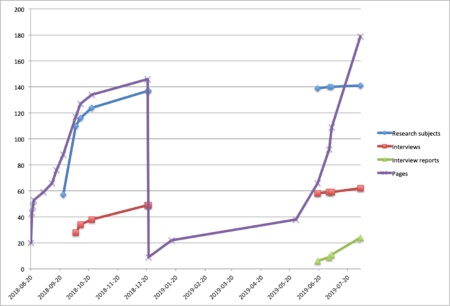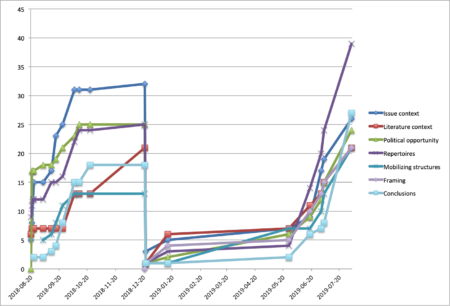Given how much I have been thinking about ‘the summer’ as a unit, September might have been expected to arrive with a feeling like a sonic boom experienced from the ground or the tolling of an ancient clock bell.
The temporary life reorganization arising from my mother’s short visit blurred the transition, as I had set aside the regimen of PhD work which had become the skeleton for my life for three days anyhow.
I haven’t won any teaching assistant positions for now, so the thesis can continue as a pretty exclusive focus. I may try to get a 50-75 hour grading position in one of the later emergency rounds.
I am aiming to complete my data analysis as soon as possible, while working at a sustainable rate, and then moving on promptly from that to submitting a formal manuscript to my committee members for the largest substantive stage of their comments and review.
Back in August 2017 I said: “The aim now is to get ethical approval by October and finish writing and defending the dissertation by September 2019.” Given that there will be 3-4 months of time spent by the committee reviewing my manuscript while I work on other things, aiming to defend by the end of 2019 seems appropriate and plausible.


